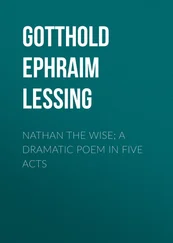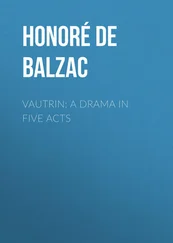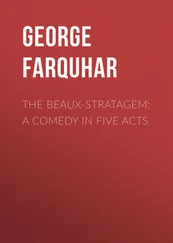Joseph Addison - Cato - A Tragedy, in Five Acts
Здесь есть возможность читать онлайн «Joseph Addison - Cato - A Tragedy, in Five Acts» — ознакомительный отрывок электронной книги совершенно бесплатно, а после прочтения отрывка купить полную версию. В некоторых случаях можно слушать аудио, скачать через торрент в формате fb2 и присутствует краткое содержание. Жанр: foreign_antique, foreign_prose, на английском языке. Описание произведения, (предисловие) а так же отзывы посетителей доступны на портале библиотеки ЛибКат.
- Название:Cato: A Tragedy, in Five Acts
- Автор:
- Жанр:
- Год:неизвестен
- ISBN:нет данных
- Рейтинг книги:4 / 5. Голосов: 1
-
Избранное:Добавить в избранное
- Отзывы:
-
Ваша оценка:
- 80
- 1
- 2
- 3
- 4
- 5
Cato: A Tragedy, in Five Acts: краткое содержание, описание и аннотация
Предлагаем к чтению аннотацию, описание, краткое содержание или предисловие (зависит от того, что написал сам автор книги «Cato: A Tragedy, in Five Acts»). Если вы не нашли необходимую информацию о книге — напишите в комментариях, мы постараемся отыскать её.
Cato: A Tragedy, in Five Acts — читать онлайн ознакомительный отрывок
Ниже представлен текст книги, разбитый по страницам. Система сохранения места последней прочитанной страницы, позволяет с удобством читать онлайн бесплатно книгу «Cato: A Tragedy, in Five Acts», без необходимости каждый раз заново искать на чём Вы остановились. Поставьте закладку, и сможете в любой момент перейти на страницу, на которой закончили чтение.
Интервал:
Закладка:
It is to this circumstance Mr. Tickell refers in his lines on Addison's death, where he has this passage:
"He taught us how to live; and, oh! too high
A price for knowledge, taught us how to die."
ACT THE FIRST
Por. The dawn is overcast, the morning low'rs,
And heavily in clouds brings on the day,
The great, the important day, big with the fate
Of Cato and of Rome – Our father's death
Would fill up all the guilt of civil war,
And close the scene of blood. Already Cæsar
Has ravaged more than half the globe, and sees
Mankind grown thin by his destructive sword:
Should he go farther, numbers would be wanting
To form new battles, and support his crimes.
Ye gods, what havoc does ambition make
Among your works!
Marc. Thy steady temper, Portius,
Can look on guilt, rebellion, fraud, and Cæsar,
In the calm lights of mild philosophy;
I'm tortured e'en to madness, when I think
On the proud victor – ev'ry time he's named,
Pharsalia rises to my view! – I see
Th' insulting tyrant, prancing o'er the field,
Strew'd with Rome's citizens, and drench'd in slaughter;
His horse's hoofs wet with patrician blood!
Oh, Portius! is there not some chosen curse,
Some hidden thunder in the stores of Heav'n,
Red with uncommon wrath, to blast the man
Who owes his greatness to his country's ruin?
Por. Believe me, Marcus, 'tis an impious greatness,
And mix'd with too much horror to be envied:
How does the lustre of our father's actions,
Through the dark cloud of ills that cover him,
Break out, and burn with more triumphant brightness!
His sufferings shine, and spread a glory round him;
Greatly unfortunate, he fights the cause
Of honour, virtue, liberty, and Rome.
His sword ne'er fell, but on the guilty head;
Oppression, tyranny, and pow'r usurp'd,
Draw all the vengeance of his arm upon them.
Marc. Who knows not this? but what can Cato do
Against a world, a base, degenerate world,
That courts the yoke, and bows the neck to Cæsar?
Pent up in Utica, he vainly forms
A poor epitome of Roman greatness,
And, cover'd with Numidian guards, directs
A feeble army, and an empty senate,
Remnants of mighty battles fought in vain.
By Heav'n, such virtue, join'd with such success,
Distracts my very soul! Our father's fortune
Would almost tempt us to renounce his precepts.
Por. Remember what our father oft has told us:
The ways of Heav'n are dark and intricate,
Puzzled in mazes, and perplex'd with errors;
Our understanding traces them in vain,
Lost and bewilder'd in the fruitless search;
Nor sees with how much art the windings run,
Nor where the regular confusion ends.
Marc. These are suggestions of a mind at ease: —
Oh, Portius! didst thou taste but half the griefs
That wring my soul, thou couldst not talk thus coldly.
Passion unpitied, and successless love,
Plant daggers in my heart, and aggravate
My other griefs. – Were but my Lucia kind —
Por. Thou see'st not that thy brother is thy rival;
But I must hide it, for I know thy temper. [ Aside.
Behold young Juba, the Numidian prince,
With how much care he forms himself to glory,
And breaks the fierceness of his native temper,
To copy out our father's bright example.
He loves our sister Marcia, greatly loves her;
His eyes, his looks, his actions, all betray it;
But still the smother'd fondness burns within him;
When most it swells, and labours for a vent,
The sense of honour, and desire of fame,
Drive the big passion back into his heart.
What! shall an African, shall Juba's heir,
Reproach great Cato's son, and show the world
A virtue wanting in a Roman soul?
Marc. Portius, no more! your words leave stings behind them.
Whene'er did Juba, or did Portius, show
A virtue that has cast me at a distance,
And thrown me out in the pursuits of honour?
Por. Marcus, I know thy gen'rous temper well;
Fling but the appearance of dishonour on it,
It straight takes fire, and mounts into a blaze.
Marc. A brother's suff'rings claim a brother's pity.
Por. Heav'n knows, I pity thee – Behold my eyes,
Ev'n whilst I speak – Do they not swim in tears?
Were but my heart as naked to thy view,
Marcus would see it bleed in his behalf.
Marc. Why then dost treat me with rebukes, instead
Of kind condoling cares, and friendly sorrow?
Por. Oh, Marcus! did I know the way to ease
Thy troubled heart, and mitigate thy pains,
Marcus, believe me, I could die to do it.
Marc. Thou best of brothers, and thou best of friends!
Pardon a weak distemper'd soul, that swells
With sudden gusts, and sinks as soon in calms,
The sport of passions. But Sempronius comes:
He must not find this softness hanging on me.
Sem. Conspiracies no sooner should be form'd
Than executed. What means Portius here?
I like not that cold youth. I must dissemble,
And speak a language foreign to my heart.[ Aside.
Good-morrow, Portius; let us once embrace,
Once more embrace, while yet we both are free.
To-morrow, should we thus express our friendship,
Each might receive a slave into his arms;
This sun, perhaps, this morning sun's the last
That e'er shall rise on Roman liberty.
Por. My father has this morning call'd together
To this poor hall, his little Roman senate,
(The leavings of Pharsalia) to consult
If he can yet oppose the mighty torrent
That bears down Rome and all her gods before it,
Or must at length give up the world to Cæsar.
Sem. Not all the pomp and majesty of Rome
Can raise her senate more than Cato's presence.
His virtues render our assembly awful,
They strike with something like religious fear,
And make even Cæsar tremble at the head
Of armies flush'd with conquest. Oh, my Portius!
Could I but call that wond'rous man my father,
Would but thy sister Marcia be propitious
To thy friend's vows, I might be blest indeed!
Por. Alas, Sempronius! wouldst thou talk of love
To Marcia, whilst her father's life's in danger?
Thou might'st as well court the pale, trembling vestal,
When she beholds the holy flame expiring.
Интервал:
Закладка:
Похожие книги на «Cato: A Tragedy, in Five Acts»
Представляем Вашему вниманию похожие книги на «Cato: A Tragedy, in Five Acts» списком для выбора. Мы отобрали схожую по названию и смыслу литературу в надежде предоставить читателям больше вариантов отыскать новые, интересные, ещё непрочитанные произведения.
Обсуждение, отзывы о книге «Cato: A Tragedy, in Five Acts» и просто собственные мнения читателей. Оставьте ваши комментарии, напишите, что Вы думаете о произведении, его смысле или главных героях. Укажите что конкретно понравилось, а что нет, и почему Вы так считаете.












